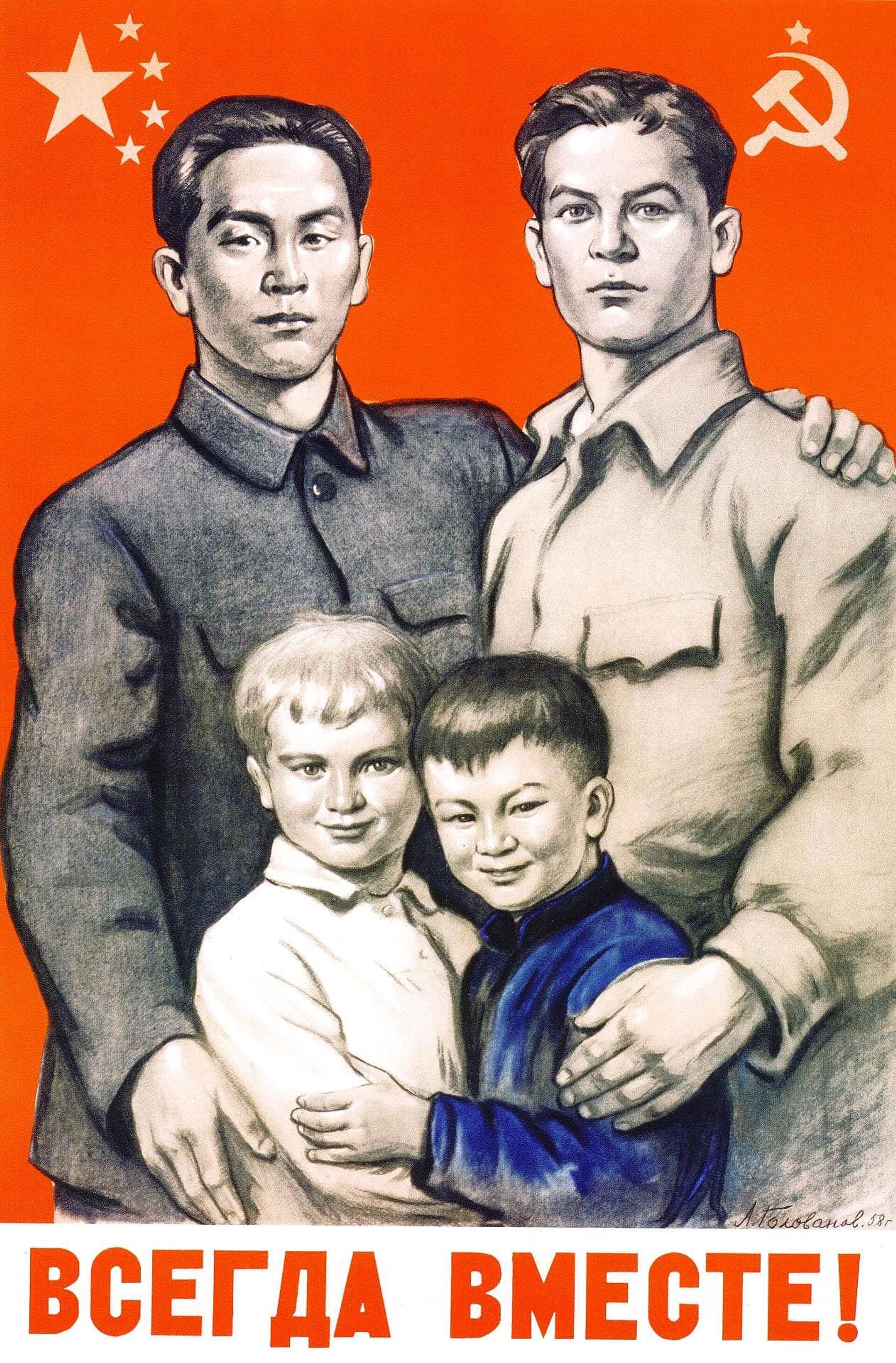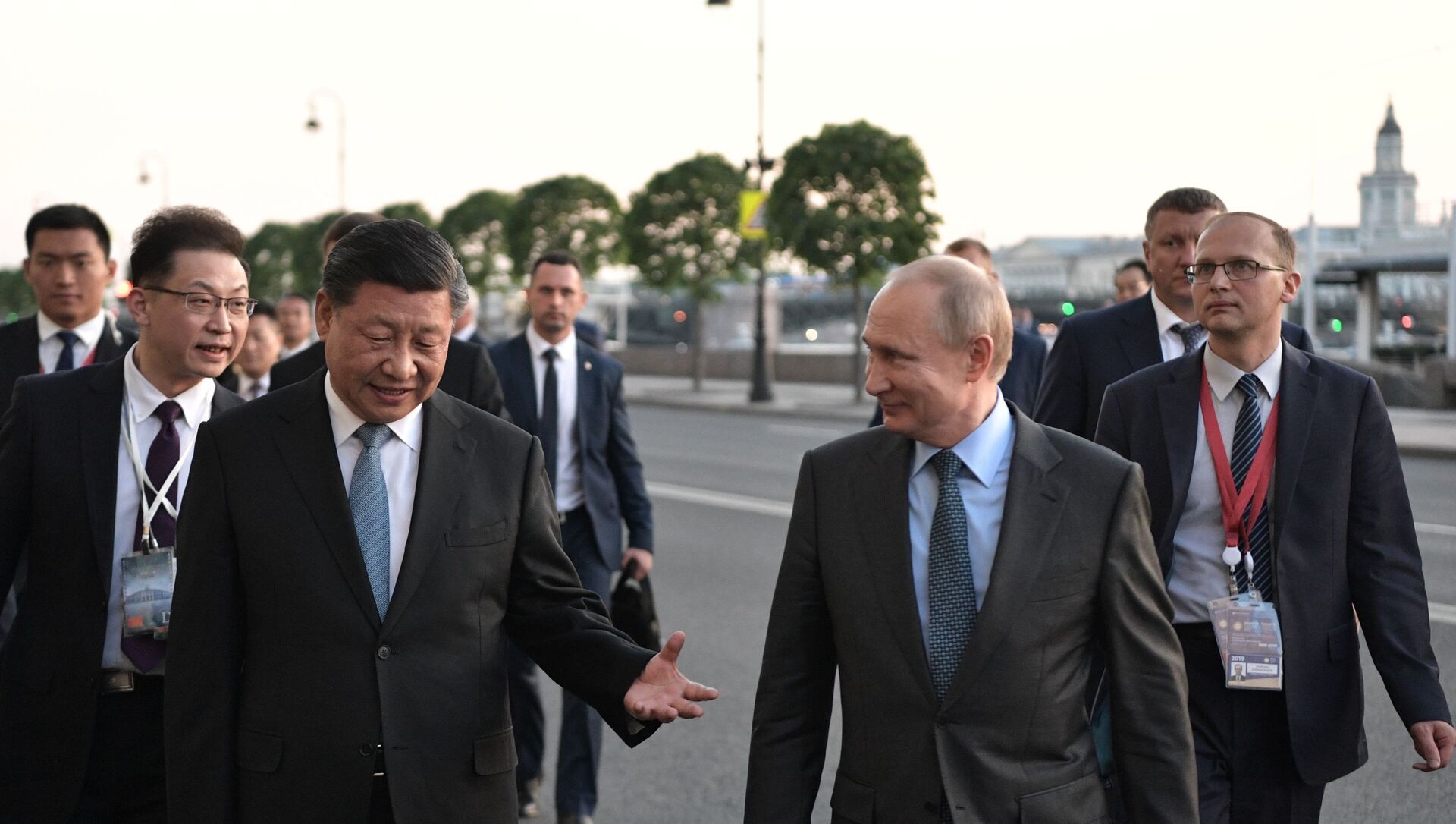The Chinese Foreign Ministry dispelled rumors Beijing and Moscow are planning a formal alliance to counteract the US-led North Atlantic Treaty Organization (NATO) or the Indo-Pacific “Quad” group, but noted the two nations often have interests that coincide.
“China-Russia military relations are ... an important supporting force in strategic cooperation between the two countries,” the ministry said in a Monday statement quoted by the South China Morning Post. “The two sides adhere to the principle of non-alignment, non-confrontation and non-targeting of third countries, which differs completely from the military alliance between some countries.”
Instead, the two nations maintain what they call a “comprehensive strategic partnership,” which has focused on economic integration and “win-win cooperation,” as Chinese President Xi Jinping put it in 2019 when he urged Russian President Vladimir Putin to upgrade their relations.
The two nations have also participated in many joint military drills in recent years, with Russia inviting Chinese forces to participate in the Kavkaz 2020 war games and the huge Vostok 2018 drills, both of which also featured other nations as well.
Asked about the possibility of an alliance in October, Putin told reporters, “we don’t need it, but, theoretically, it’s quite possible to imagine it.”
“The time will show how it will develop,” he said of continuing Sino-Russian military cooperation and weapons sales, adding that “we won’t exclude it.”

Such a formal alliance existed in the decade after the victory of the Chinese Communist Party in the Chinese civil war, when the People’s Republic of China and the Union of Soviet Socialist Republics stood together as two socialist superpowers. However, that pact fell apart in the 1960s amid a series of internal debates over leadership of the world communist movement, the correct path forward for socialist development, and other issues such as border disputes.
An important factor in the Sino-Soviet split was the influence of the United States, which helped to divide the two by claiming to provide a counterpoint to Soviet influence for China. While tensions between Beijing and Washington have cooled considerably in recent years, as those between Beijing and Moscow have warmed once more, the Defense Ministry also said it hopes that bilateral ties between the US and Chinese militaries will continue to grow.
However, the ministry also responded to claims by the US in particular that China poses a threat to its neighbors.
“China's socialist nature, its strategic choice to take the road of peaceful development and independent foreign policy of peace, as well as the traditional Chinese culture advocating ‘harmony,’ determine that China unswervingly pursues a defense policy that is defensive in nature,” the ministry said in a separate news release on Monday.
“China unswervingly pursues a defensive national defense policy. It is a distinctive feature of China's national defense in the new era that China will never seek hegemony, expansion or spheres of influence … The building and development of China's national defense and armed forces is entirely driven by the need to safeguard China's national sovereignty, security and development interests, not targeting any country or not posing threat to any country,” the ministry added.




